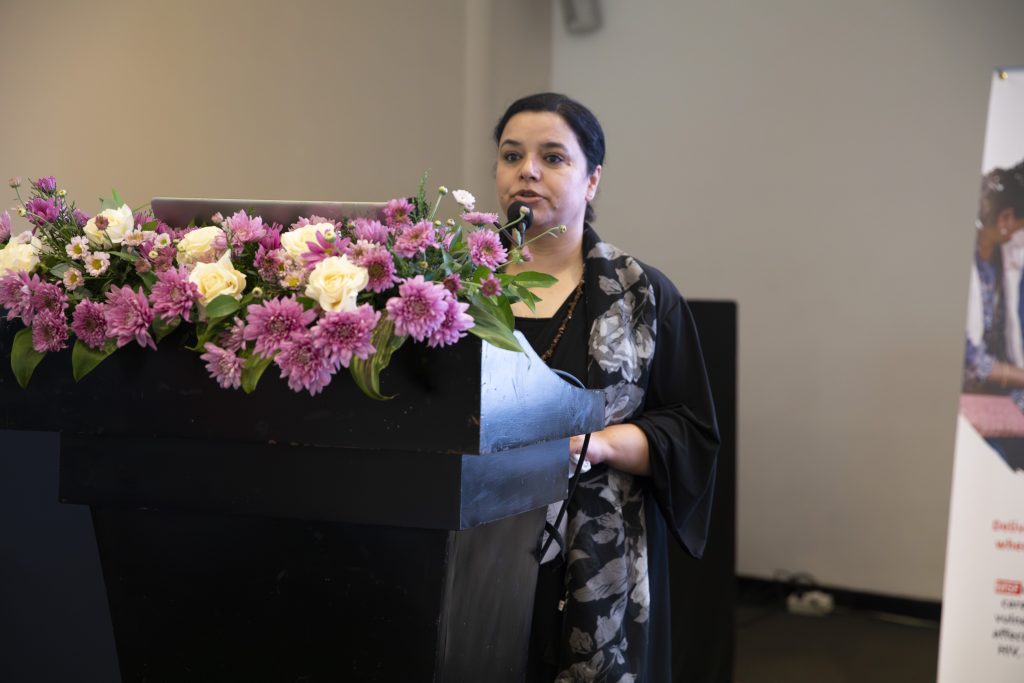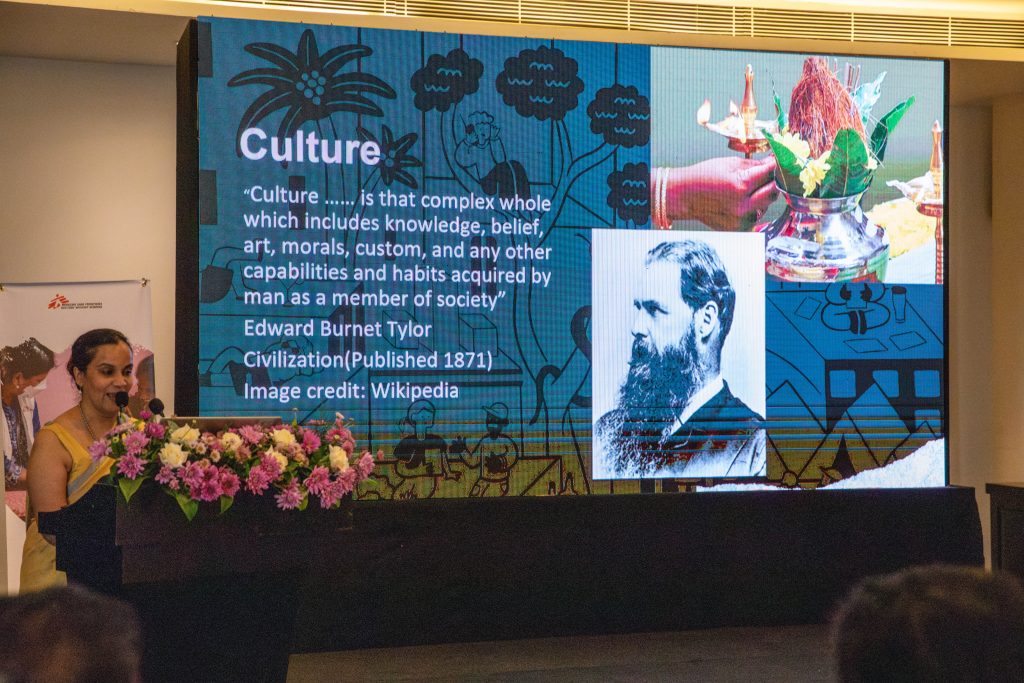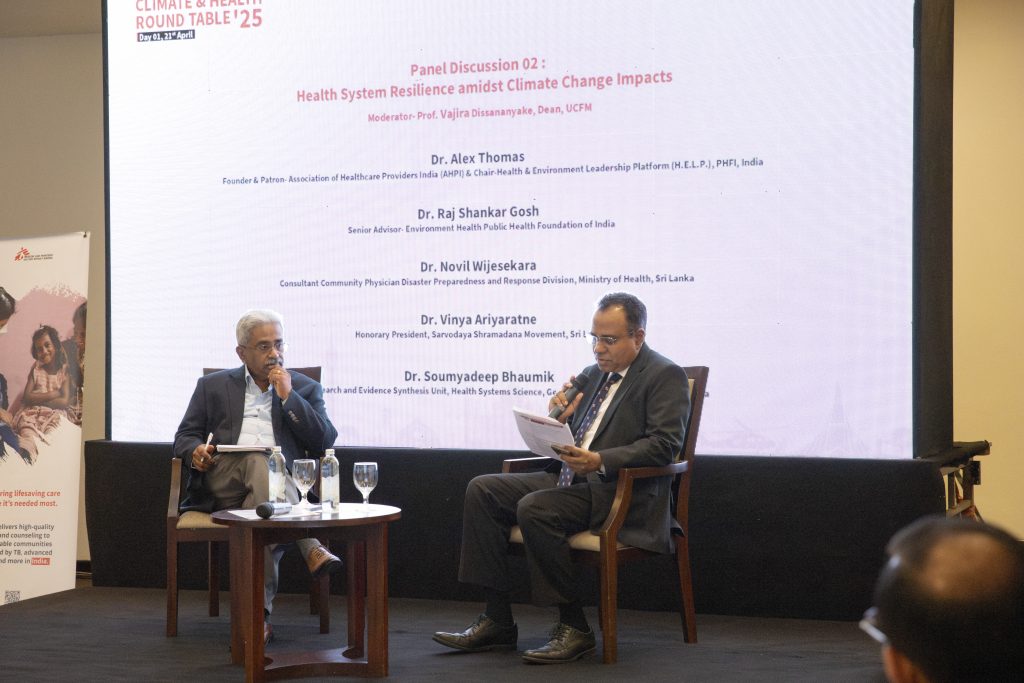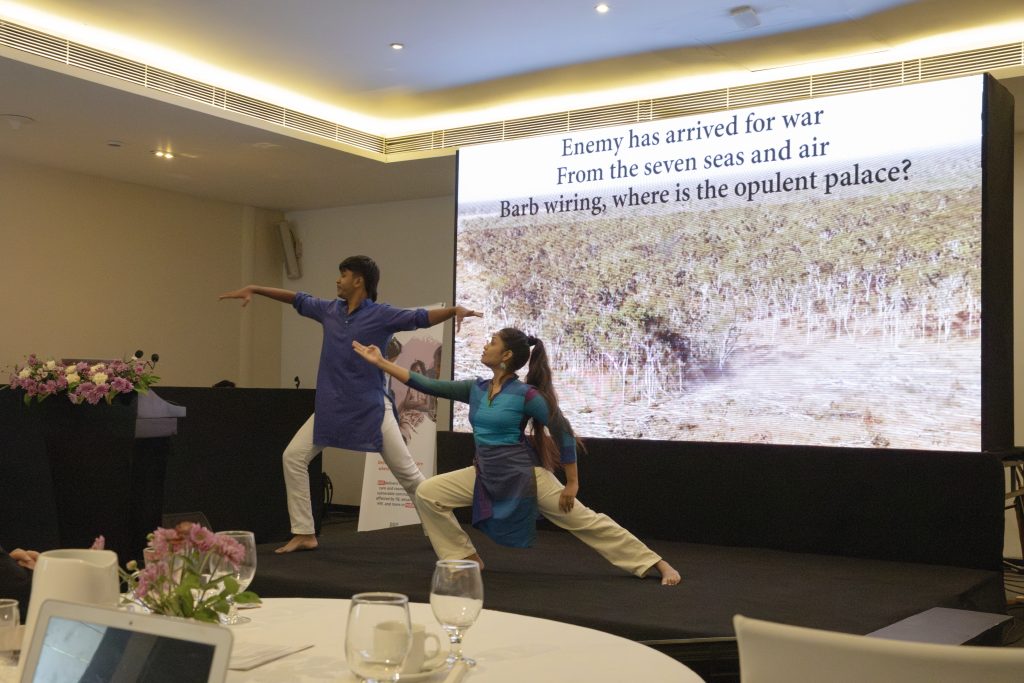22 April 2025, Colombo- Médecins Sans Frontières (MSF)/Doctors Without Borders convened a pivotal two-day roundtable, ‘Dousing the Blaze: Setting Priorities for Integrated Action on Health Impacts of Climate Change’, on April 21–22, 2025, in Colombo, Sri Lanka. The event brought together more than 60 experts, policymakers, academics, frontline practitioners, and community leaders from across South Asia to craft a united and integrated response to the escalating health consequences of climate change.
Among the most significant outcomes of the roundtable was the establishment of a regional expert working group tasked with co-developing climate-health strategies and a position paper to be released in May 2025, ahead of COP30. MSF’s Medical Research Innovation and Social Mission team will also lead the creation of a regional repository of best practices and research to drive cross-border collaboration. Participants committed to forming a sustained regional advocacy network to influence national and regional policy, while a new community mobilisation framework will be co-developed to amplify grassroots voices and support local resilience strategies.

The event opened with remarks from the Executive Director of MSF South Asia, the Director General of Health Services at Sri Lanka’s Ministry of Health; Dr. Asela Gunawardena, and Dean of the Faculty of Medicine at the University of Colombo; Professor Vajira Dissanayake. Lead collaborator of The Lancet Countdown on Health and Climate Change; Dr. Meisam Tabatabaei, delivered the keynote address, presenting a global overview of climate-health interlinkages and the imperative for coordinated regional action.
Throughout the roundtable, focused panel discussions and workshops promoted robust dialogue on integrating climate resilience into public health systems. A notable session on ‘Extreme Weather Events and Health Impact’, moderated by Dr. Lahiru Kodituwakku, Public Health Specialist at MSF South Asia, discussed strategies to manage increasing climate emergencies effectively, featuring speakers like Ms. Anusha Warnasooriya from the Sri Lanka Meteorology Department and Prof. Sujatha Mathews from Ram Manohar Lohia Hospital, New Delhi, India.

Former Vice Chair of the Nobel prize winning Intergovernmental Panel on Climate Change, Prof. Mohan Munasinghe, during his session ‘Regional Climate Perspective: Voices from the global South’ echoed the call for justice-focused climate action, stating, “We need science, equity, and public participation to align, only then can we deliver justice in climate action”.
A session on ‘Health System Resilience Amid Climate Change Impact’, moderated by Prof. Vajira Dissanayake, brought in voices from the Public Health Foundation of India, the Association of Healthcare Providers India, the Sarvodaya Shramadana Movement, and Sri Lanka’s Disaster Preparedness and Response Division. The dialogue emphasized the importance of embedding equity, sustainability, and community engagement into system reforms.
Another session on ‘Governance, Regulatory Frameworks in Climate Change Mitigation, Adaptation and Loss and Damages’ highlighted some key insights into regulatory mechanisms and Nationally Determined Contributions (NDC) in Sri Lanka presented by Director of Sri Lanka’s Climate Change Secretariat, Leel Randeni. Speakers-Dr. Aniket Chowdhury (Assistant Director, NCDC India) Dr. Asim Baashir Khan (Public Finance Expert at UNICEF Pakistan), and Amit Timilsina (IPAS, Nepal) shared regional insights, stressing the need for stronger governance, inclusive financing, and cross-country accountability in climate-health action.

The roundtable also spotlighted underrepresented perspectives in a panel on ‘Gender, Sexual And Reproductive Health, Disability, And Climate Impacts’. Speakers included, UN Women’s ‘30 for 2030’ Youth Leader for Gender Equality; Geliee Skandakumar, Researcher in Disability and Board Member Women Enabled International; Niluka Gunawardena and Prakriti Dalal of United for Action, Nepal. They shed light on the intersectional impacts of climate change, calling for inclusive responses that leave no one behind.
Dr. Vinya Ariyaratne, Chairman of the Sarvodaya Shramadana Movement, in his closing remarks concluded by advocating regional cooperation: “South Asia must lead through solidarity; collective action is no longer just strategic, it’s essential.”

Interactive sessions showcased innovative climate-health solutions from organizations including Solar Electric Light Company India, Drugs for Neglected Diseases Initiative (DNDI), Thanal, Sarvodaya, Sangath presenting replicable models for regional adaptation and resilience.
MSF’s ‘Dousing the Blaze’ roundtable has set a new precedent in regional collaboration, uniting diverse stakeholders to urgently address the intersection of climate and health. Moving forward, MSF will continue fostering these partnerships, advocating for integrated, inclusive, and resilient health systems.
Doctors Without Borders/Médecins Sans Frontières (MSF) is an international, independent medical humanitarian organization. In more than 70 countries, we provide medical assistance to people affected by conflict, epidemics, disasters, or exclusion from healthcare. Our teams are made up of tens of thousands of health professionals, logistics and administrative staff – most of them hired locally. Our actions are guided by medical ethics and the principles of impartiality, independence, neutrality and accountability.
For further information, please visit: www.msfsouthasia.org
No Related Events






